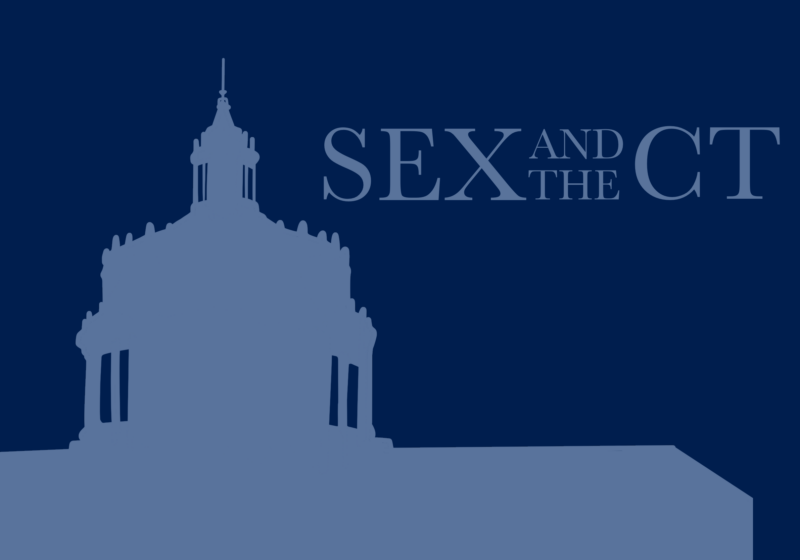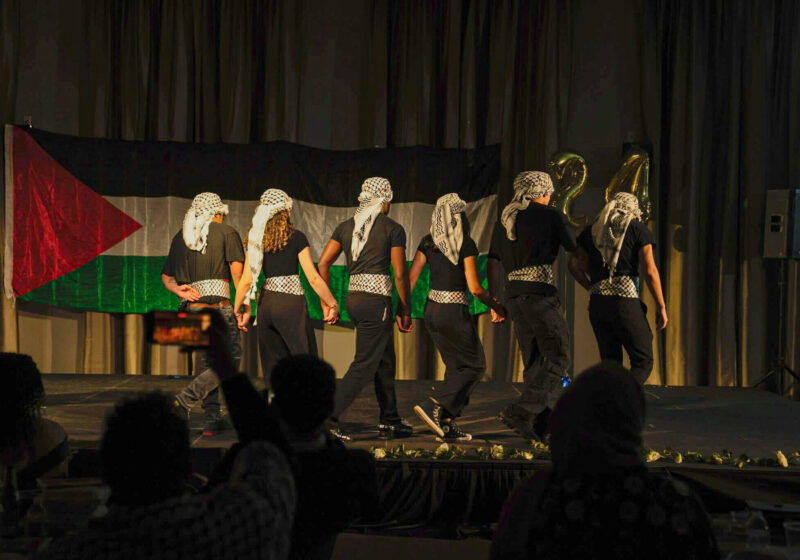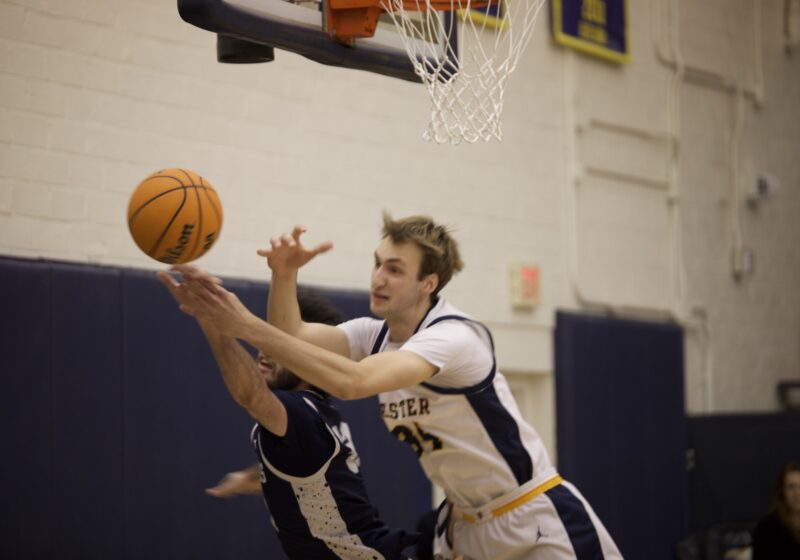David Weinberg loves show and tell—but not the kind with teddy bears and house pets. Instead, he loves sharing his stories, especially when they get him talking about his experiences at UR. It may come as no surprise, then, that of all the extracurricular activities he’s participated in during his four years at UR, the Meridian Society has been his favorite.
As Weinberg said, sitting outside of Starbucks, his excitement evident amid the post-finals calm of the lounge, Meridians are “tasked with giving tours to prospective students, mostly, but [also] to potential employees, new hires, sometimes donors [and] legacies.” On any given day—but particularly in the spring, when flowers bloom and campus explodes in life—you can see the Meridians guiding groups around campus. They’re easy to spot, too: just look for their trademark blue jackets and backward walking— something that is treated more as an art than a skill.
Weinberg’s role extends beyond that of just a tour guide: he is also the co-recruitment and training leader of the organization. As the title implies, his role is twofold, split between semesters.
In the fall, Weinberg occupies himself with encouraging people to apply to the Meridian Society and, later, sifting through applicants to find the best individuals for the job. “It is my job to—in the fall flyer—get people to apply, to get people aware of what the Meridian Society is,” he explained. “I oversee the hiring process of [the Meridian
Society]. There are three rounds: the first is just the application, the second is a group interview and the third is a presentation. After each round, we cut down people, so we have about 30-35.”
When the second half of the school year rolls around, Weinberg switches from recruiting Meridians to teaching them. “In the spring, which is the other half of my job, is the training,” he said. The demands of the training sessions aren’t for the faint-hearted—the group meets once a week for about nine weeks, each time crawling out of bed and showing up bright and early to learn at 8 a.m. “We teach them, basically, facts about the school, myths that you might think are true but are not actually true at all [and] how to answer tough questions from parents,” Weinberg explained.
While rigorous, the training sessions aren’t as bland as they might seem—the group is constantly looking for new ways to keep their members stimulated. “We try to make it really fun,” Weinberg said. “It is intense, but I think it’s enjoyable. We bring in a lot of different speakers from different parts of the school.” These speakers give Meridians firsthand insights on the departments and programs they spend their days discussing, enriching their education so that they can better excite and engage visitors. This year, the Meridian Society hosted a speaker from one of the school’s newest majors, Audio and Music Engineering, an achievement Weinberg beamed about.
The meetings are structured so that new Meridians attend every week, while current Meridians come
in every other week. The system emphasizes constant education— there is always new information to learn about the school—and mentorship.
In their first semesters as hires, new Meridians participate in workshops with returning members of the group and begin by shadowing current Meridians as they give tours. “On your tour shift, for the first three weeks, you don’t speak—you just listen,” Weinberg explained. After tagging along silently for three weeks, new members are able to start taking more prominent roles in tours, progressively speaking more and more as the weeks pass. This graduated system dismays many of the new Meridians, Weinberg said, mostly because there is so much content to master before they can properly lead tours, regardless of how confident they may be entering the job.
“That was hard for me because I was so excited to be hired,” Weinberg said. “After I started watching people on my tour shifts start giving tours, I was like, ‘Oh, I actually am not ready to give a tour yet.’”
To Weinberg, the best parts about being a Meridian and giving tours involve basic elements of storytelling and show and tell, especially audience engagement.
“Being able to, once a week, share my story about the school, just to be able to talk to people who are as excited about the school as I am—since I’m passionate about the school and they want to be passionate about the school, it’s just fun,” he said.
But Meridian tours are a two-way experience, and the enjoyment of the participants is just as important as the experience of the guides.
“The biggest thing we look for in a Meridian is someone who can tell stories,” he said.
The organization cares less about memorized statistics and more about giving substance to their tours, leaving the best possible impression on their visitors.
“The reason I think being a Meridian is so successful is because you’re not a website […] [People] come on a tour because they want to hear student perspectives, and so we look for people who can give that, who can say, ‘Here’s my story. Here’s why I love the school so much.’”
It is this—a focus on creating engaging experiences—that drives much of what Meridians strive to do: connecting with the people they guide about campus. “Kids in high school […] really want to hear what is it like to be a college student, from a college student,” he said.
What sets a Meridian tour apart is that they start by asking their guests questions. “There’s way too much about the school to say on a tour,” Weinberg said, which is why Meridians narrow the scope of conversation right off the bat by discovering what their audience likes and is interested in. This method helps them emphasize topics relevant to the visitors. “You have one hour to talk, and there’s way more than an hour’s worth of things to say about the school, and you can’t say all of it on tour, so think about what is going to be the most relevant to this person; what is going to make them the most interested about the school; how can I share the aspects of the school that I think they’ll be excited about,” Weinberg exclaimed, animated.
And the Meridians’ strategies work. “I’ve had kids on accepted students days—immediately after the tour—enroll in the school, and that’s the best feeling in the whole world: to know that you had such a big part, that you personally played such a big part, in their decision to enroll,” Weinberg said. “That’s the greatest feeling.”
After two years of walking backward, Weinberg is looking forward to the future: he’s graduating with degrees in Business and English and is moving to New York City. But, even with a new chapter in his life approaching, Weinberg will never forget his beginnings with the Meridian Society. As he reflected on what lead him to apply, he highlighted again just how important storytelling and communication are to the organization.
Even though he eventually became a leader in the group, Weinberg didn’t even know it existed as a freshman. It was only when, as a sophomore, a senior Meridian brother of his fraternity encouraged him to apply that he found out about the organization. As soon as his friend explained what was involved, Weinberg was hooked.
“That is perfect for me,” he recalls thinking. Evidently, it was.
Trombly is a member of the class of 2018.




